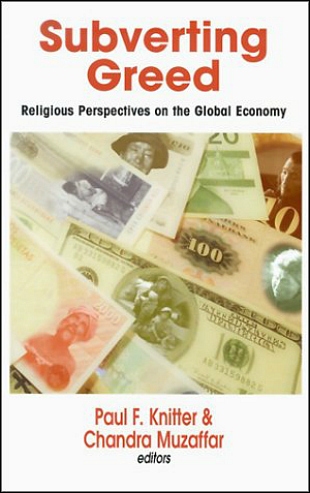"It is no coincidence that the Greek word for house, oikos, is the source of our words for economics, ecology, and ecumenical. The three belong together: in order for the whole household of the planet to flourish, the earth's resources must be distributed justly among all its inhabitants, human and earth others, on a sustainable basis. The three basic economic rules for all to thrive in this household are: take only your share; clean up after yourself; and keep the house in good repair for those to come. These rules should be pinned up on the planet's 'fridge' for all members to memorize and follow. They are necessities, not suggestions, that constitute the basic economic laws for long-term planetary well-being. . . .
"If we were to follow these rules we would be living within a different vision of the good life, the abundant life, than is current in our consumer culture and that is destroying the planet. We would begin to accept what ecological economist Robert Costanza calls our greatest calling: 'Probably the most challenging task facing humanity today is the creation of a shared vision of sustainable and desirable society, one that can provide permanent prosperity within the biophysical constraints of the real world in a way that is fair and equitable to all of humanity, to other species, and to future generations.' "
